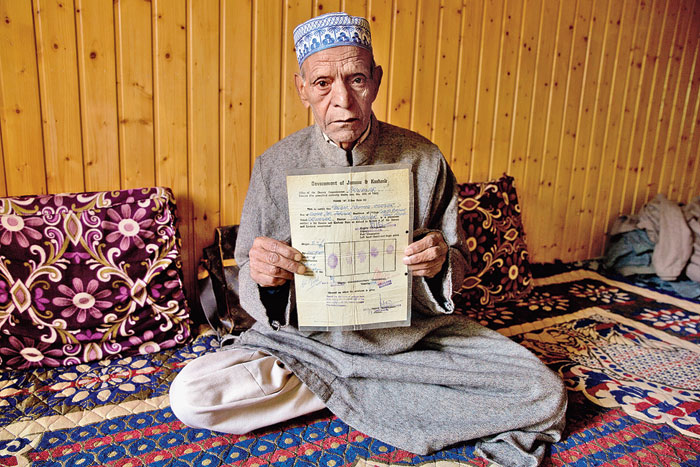The largest fact-finding team to visit the Kashmir Valley after August 5 has found a virtually inaccessible judicial system, widespread and repeated claims of torture and an overwhelming majority afflicted with psychological trauma.
The team included human rights lawyers Mihir Desai, Lara Jesani, Veena Gowda, Clifton D’Rozario, Aarti Mundkur and Saranga Ugalmugle, psychiatrist Amit Sen, trade unionist Gautam Mody and Bangalore-based activists Nagari Babaiah, Ramdas Rao and Swati Seshadri. They visited five Valley districts between September 28 and October 4.
The section on torture in their report contains allegations of beatings where the victims’ screams were recorded and played on loudspeakers, torture by electric shocks on genitals and sexual abuse of boys and women. None of the alleged victims or other witnesses were willing to reveal their names for fear of reprisal.
“After a BBC story on torture (of a militant’s brother allegedly by the Rashtriya Rifles, with the victim’s screams played on a loudspeaker) in a village in Shopian, the armed forces came again and tortured him, and said, ‘How dare you speak to the media?’” Ugalmugle told a news conference.
According to the team, accessing the courts has become practically impossible for people in the Valley.
“They (high court lawyers) informed us that, while the entire judiciary had been rendered non-operational due to the communications blockade and movement restrictions, the lawyers too have taken the decision to boycott the regular court proceedings over the abrogation of (key provisions of) Article 370, communication blockade, systemic clampdown by the State and the arrest of lawyers and prominent members of the Bar Associations,” the team’s report says.
“The Bar Association has identified and designated six lawyers to appear in urgent matters such as challenges to detention orders passed under the PSA (Public Safety Act), habeas corpus petitions or applications for family members to visit those detained.”
Habeas corpus pleas seek the production of a person before a court to determine whether he or she has been detained illegally. The PSA allows detentions for long periods without trial.
“We were informed that prior to August 5, 2019, there were approximately 200 habeas corpus petitions pending; now there are more than 600. From August 5, 2019, more than 330 habeas corpus petitions had been filed till September 30, 2019,” the report says.
“There are countless detentions that are unlawful, hence no one except the State knows how many persons are illegally detained. They (Kashmir residents) said there are reports that more than 13,000 people have been unlawfully detained. The family members of those who are detained unlawfully are apprehensive that if they complain about the detention or were to approach the courts for habeas corpus or any other relief, then as a counter, PSA would be slapped and it would become impossible to get them released.”
Gowda said the police were not registering FIRs against the detainees, thereby keeping no records of the detention.
“There is a complete lack of documentation and people can’t file bail applications even for children as there is no FIR. People are unable to access the law. The UAPA (terror) court is in Srinagar and there is no transport available for people from other districts to reach there,” Gowda said.
The report has a section on mental health among the stressed-out population of Kashmir, based on interviews that Delhi-based psychiatrist Sen had with mental health professionals in the Valley.
“The children and adolescents coming for PFA (psychological first aid) in two districts were reporting extreme violence by armed forces and night raids — as corroborated through reports from other team members of this group who have visited various villages and towns in different districts — which has created an atmosphere of terror and panic amongst young people and their families,” it says.
“They were sharing experiences of paralysing fear, acute anxiety, panic attacks, depressive and dissociative symptoms, post-traumatic symptoms, suicidal tendencies and severe anger outbursts…. There is a marked increase in psychological distress in 70 per cent (as estimated through a recent survey) of the population.
“One senior psychiatrist described it as a constant state of paranoia which has made people in the community mistrust any(one) and everyone. The ones who have proximity to each other have attempted to support one another, have group discussions and find novel ways of coping with such unprecedented stress.
“There were reports of extreme impact in young people, often teenagers who were subjected to torture and abuse, in the form of ‘acute reaction to stress’ and ‘post-traumatic stress disorder’. There were two reported suicides and (reports) of many young people running away from home due to fear of persecution or possible dissociative states.”











